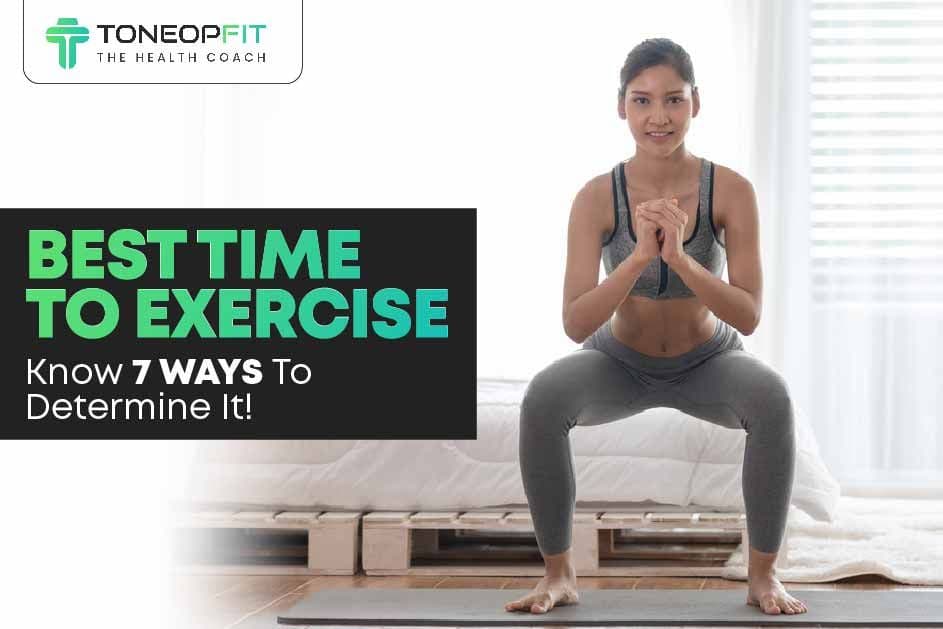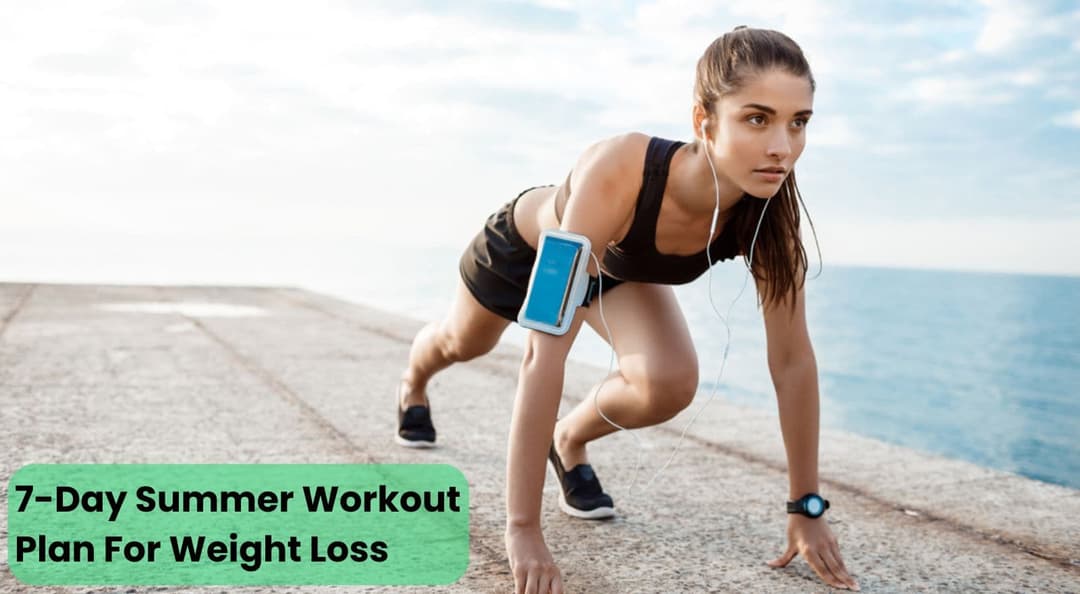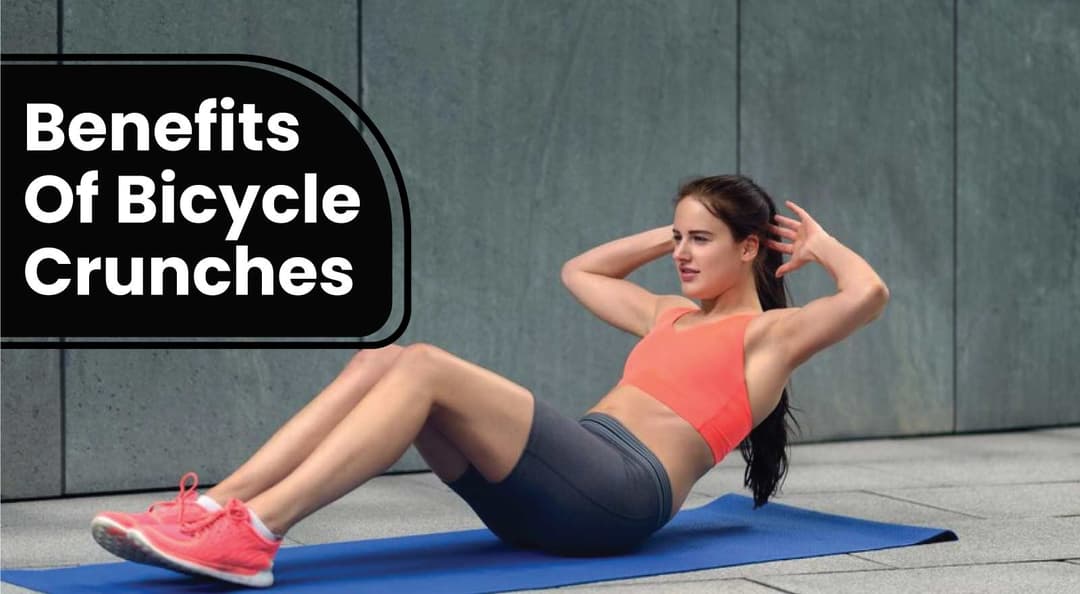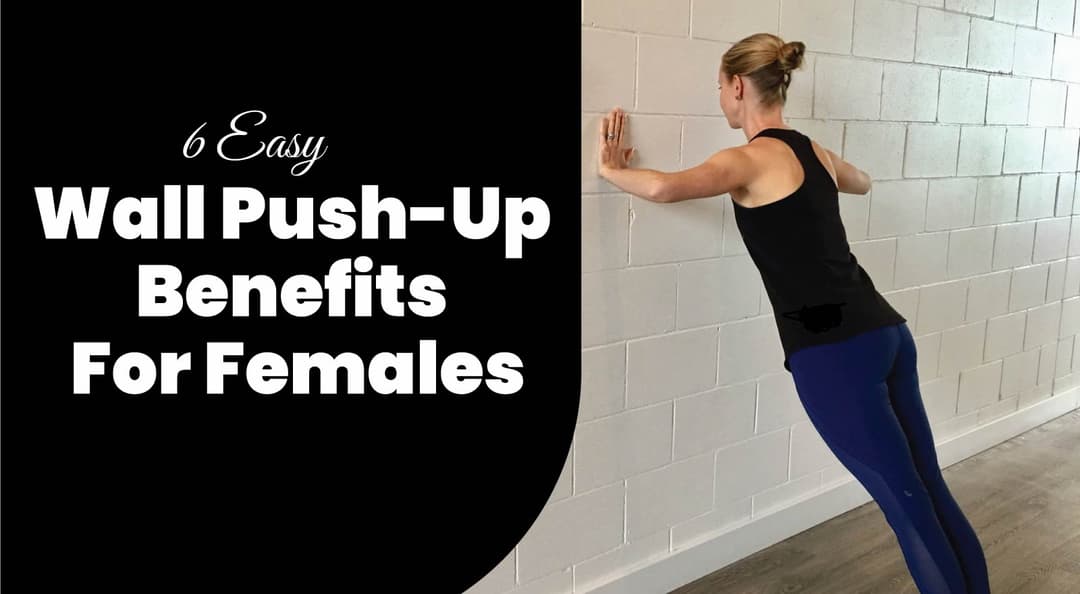Determining the best time to exercise is an ongoing interest within fitness and sports science. Indeed, the best time of the day to workout extends beyond a single-sided approach, recognising that different forms of exercise may be best suited to other times of the day. From cardiovascular training to resistance exercises or sports-specific workouts, each type of exercise may have its optimal time window for maximising performance and achieving desired outcomes. Thus, understanding these nuances will help you find the best time to do workout.
Recent findings from a meta-analysis by the National Institutes of Health (NIH) suggest that the ideal time to exercise is later. Mean power output in specific physical tests, such as the 30-second Wingate test, jump height, and handgrip strength, tends to be higher in the late afternoon and early evening than in the morning. These findings underscore that the ideal time to workout varies depending on individual factors and the specific type of physical activity.
When exploring the best time to exercise, it becomes apparent that a nuanced approach is necessary, considering your body's circadian rhythms, hormonal fluctuations, and individual variations in energy levels and peak performance times. By discussing the seven ways listed to determine the perfect time for exercise, you can gain insights into optimising your workout schedules to enhance performance. So, keep reading!
Table Of Contents
1. What Is The Ideal Workout Time?
2. What Is The Best Time Of Day To Workout?
3. Is It Better To Exercise In The Morning Evening Or Night?
4. Is It Better To Exercise On An Empty Stomach?
5. The Final Say
6. FAQs
7. References
What Is The Ideal Workout Time?

According to ACSM guidelines and other journals, the best time to exercise differs for different forms of workouts and training. Let’s explore the ideal workout time based on the performance of eligible candidates to refer to while you train:
1. Optimal Time For Resistance Training
The optimal time for resistance training is between 4 p.m. and 6 p.m. when body temperature peaks. This period is believed to enhance flexibility, speed, and strength, maximising the benefits of resistance training sessions.
2. Best Time For Cardiovascular Exercises
Early to mid-morning is considered the best time for cardiovascular exercises. Muscle stamina and endurance tend to peak during this time, making it optimal for workouts that require sustained effort and energy.
3. Ideal Timing For Sports-Specific Exercises
For sports-specific exercises, the middle of the day is recommended. This is when mental acuity is at its highest, allowing athletes to perform at their peak and excel in their chosen sports activities.
4. Best Time To Exercise For Weight Management
A study published in the journal Obesity suggests that exercising between 7 AM and 9 AM may have additional benefits. Participants who exercised during this time frame had lower waist circumference and body mass index compared to those who worked out during midday or evening. Morning workouts could be advantageous for weight management and overall health.
Ultimately, the ideal workout time may vary based on individual schedules, preferences, and goals. It's essential to experiment with different times and find what works best for you regarding energy levels, performance, and adherence to your exercise routine.
What Is The Best Time Of Day To Workout?
Let’s explore the ways to determine the best time to exercise based on your fitness level:
1. Note Your Energy Levels
Observing your energy levels throughout the day can help you determine the best time to work out. Some individuals have higher energy levels in the morning and prefer to exercise during this time. Conversely, others may feel more awake and alert later in the day, making afternoon or evening workouts more suitable. By paying attention to your body's natural rhythms, you can schedule your workouts when you feel most energised and capable of giving your best effort.
2. Consider Your Fitness Goals
When deciding on the optimal workout time, it's essential to consider your fitness goals. Different times of the day may be more conducive to achieving specific objectives. For instance, if you aim to build muscle, you may benefit from working out in the afternoon or evening. During these times, your body temperature is typically higher, and your muscles are more flexible, enhancing performance and muscle growth.
3. Analyse Your Inner Body Clock
Each person has a unique internal body clock, known as circadian rhythms, which influence various physiological processes, including physical performance. Experimenting with different workout times lets you identify when you feel strongest and most alert. By understanding your body's natural rhythms, you can schedule your workouts at times that align with peak performance periods, optimising the effectiveness of your exercise routine.
4. Depends On Your Workout Type
The type of workout you engage in can also impact the best time to exercise. For instance, high-intensity workouts may be more effective in the morning when cortisol levels are naturally higher. Elevated cortisol levels can increase alertness and provide the energy needed for intense physical activity. Activities like flexibility training or yoga might be better suited for the evening to promote relaxation and help alleviate stress.
5. Experiment With Meal Timing
Meal timing is crucial to optimising workout performance and recovery. Some individuals prefer exercising on an empty stomach in the morning, while others perform better after eating a small snack or meal. Experimenting with different meal timings can help determine what works best for your body and fitness routine.
6. Pay Attention To Stress Levels
Monitoring your stress levels throughout the day can influence the timing of your workouts. Exercise is a powerful stress reliever, so choosing a time when you typically feel more stressed can help you manage your emotions and improve your overall well-being. Incorporating exercise into your routine during heightened stress can reduce tension and anxiety, promoting mental clarity and emotional balance.
7. Consider Your Sleep Timing
The timing of your workouts can also impact your sleep quality. While exercise is generally beneficial for promoting better sleep, the timing of your workouts relative to bedtime can affect your ability to fall asleep and the quality of your rest. Some individuals find that exercising too close to bedtime can interfere with sleep, as the adrenaline and endorphins released during exercise may disrupt the body's ability to wind down.
Also Read: 7 Best Afternoon Workouts For Weight Loss, Exercise Routine And Tips!
Is It Better To Exercise In The Morning, Or Evening Or Night?
Note the three phase’s efficiency estimates to determine the best time to exercise:
Phase | Benefit | Tips to Modify |
Morning | Morning exercise can jumpstart your metabolism, increasing calorie burn throughout the day. Also, it can boost your energy levels and enhance mental clarity, setting a positive tone for the rest of the day. | To maximise morning workouts, try preparing your gym clothes and equipment the night before and choosing activities that fit easily into your morning routine. Ensure adequate hydration and fuel your body with a light snack or meal before exercising to optimise performance. |
Evening | Evening exercise is an excellent way to relieve stress accumulated throughout the day, promoting relaxation and better sleep quality. It can also capitalise on improved physical performance later in the day, leading to more effective workouts. | To maximise evening workouts, schedule them at least a few hours before bedtime to avoid disrupting sleep patterns. Incorporate relaxation techniques such as stretching or yoga into your post-workout routine to unwind and prepare your body for rest. |
Night | Nighttime exercise can suit individuals with daytime commitments or who prefer to exercise when the gym is less crowded. While initially elevating heart rate and body temperature, engaging in a cool-down routine afterwards can promote relaxation and aid in falling asleep faster. | To optimise nighttime workouts, prioritise safety by choosing well-lit and safe exercise environments and wearing reflective gear if exercising outdoors. Avoid high-intensity workouts close to bedtime, as they may interfere with sleep. Instead, use gentle exercises like walking or yoga to wind down and prepare your body for rest. |
Is It Better To Exercise On An Empty Stomach?
Exercising on an empty stomach may lead to increased fat burning, as indicated by a study from Nottingham Trent University. Participants who exercised without eating beforehand burned about 70% more fat compared to those who ate two hours before exercising. Working out on an empty stomach could benefit individuals aiming to enhance fat loss during their workouts.
Another American Diabetes Association study also supports the idea that exercising on an empty stomach can promote greater fat utilisation for fuel. When you exercise after eating, your body initially uses the calories from your recent meal for energy, potentially reducing the amount of stored fat burned during the workout.
Possible risks and considerations:
However, working out on an empty stomach can have side effects. Exercising without fueling your body beforehand can decrease stamina, cause low blood sugar levels, and cause lightheadedness, nausea, or shakiness.
Also, continuously relying on fat reserves for energy may result in the body adjusting to store more fat than usual, potentially hindering long-term weight management goals.
Thus, while exercising on an empty stomach may offer benefits in fat burning, it’s essential to consider individual health and energy levels. For example, some individuals may find that eating a small snack before exercising gives them the necessary energy to perform optimally.
The Final Say
Therefore, determining the best time to exercise is a highly individualised decision influenced by personal preferences, health considerations, circadian rhythms, and hormonal fluctuations. Suppose you have specific health conditions like diabetes, heart disease, or high blood pressure. In that case, it’s crucial to consult with a specialist to identify the most suitable workout timing for your needs. However, don’t be discouraged if the suggested “best” workout times are not feasible for your schedule.
The most important aspect is regular physical activity regardless of the time of day. Whether you choose to exercise in the morning, afternoon, or evening, the benefits of staying active remain consistent, contributing to improved overall health and well-being.
FAQs
1. What is the best time to exercise in a day?
The best time to exercise varies depending on individual preferences, schedule, and health goals. Some people find that morning workouts energise them for the day ahead, while others prefer to exercise in the afternoon or evening. Ultimately, the best time is when you can consistently commit to a workout routine and feel most comfortable and motivated to exercise.
2. What is the perfect time for a workout for office workers?
Office workers often find it challenging to fit exercise into their busy schedules. The perfect timing for workouts may depend on work hours, commute time, and personal preferences. Some office workers may prefer early morning workouts before starting their workday, while others may find exercising more convenient during lunch breaks or in the evening after work.
3. How can I determine my proper time for exercise?
Determining the proper time for exercise involves considering factors such as energy levels, schedule, and personal preferences. Experiment with different workout times to see when you feel most energised and motivated to exercise. Pay attention to how your body responds to exercise at various times of the day and choose a time that fits into your daily routine and allows for consistency.
4. Is it better to work out in the morning or evening?
There is no single answer to this question. Some people prefer morning workouts to kickstart their day and boost their energy levels, while others find evening workouts help them unwind and de-stress after a long day. The best time to work out is when you can commit to a consistent exercise routine and feel most comfortable and motivated to exercise.
5. What are the health benefits of exercising on the ideal day?
Exercising at the ideal time of day can offer various health benefits, including improved energy levels, enhanced mood, better sleep quality, and increased physical performance. For example, morning workouts may boost metabolism and mental clarity, while evening workouts can help relieve stress and promote relaxation. Consistent exercise at any time of day can contribute to overall physical and psychological well-being.
References
- https://www.ncbi.nlm.nih.gov/pmc/articles/PMC10198889/#:~:text=A%20recent%20meta%2Danalysis%2C%20for,to%20the%20morning%20%5B24%5D.
- https://www.ahajournals.org/doi/full/10.1161/CIR.0000000000000973
- https://www.acsm.org/education-resources/books/guidelines-exercise-testing-prescription
- https://www.ntu.ac.uk/about-us/news/news-articles/2022/11/exercising-on-an-empty-stomach-burned-70-more-fat,-study-found
About ToneOp Fit
ToneOp Fit is a platform dedicated to improving and maintaining good health through a comprehensive range of goal-oriented health plans with up to 3 Coach support. With a range of Weight Management, Medical Condition, Detox Plans, and Face Yoga Plans, the app also provides premium health trackers, recipes and health content. Get customised diet, fitness, naturopathy & yoga plans and transform yourself with ToneOp.









































